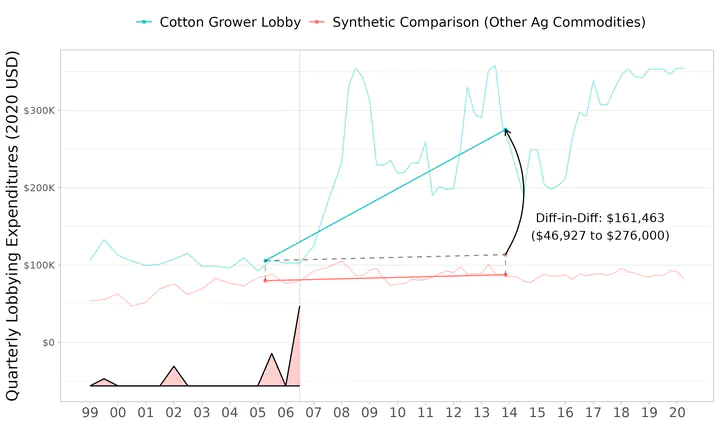Holding on to High Cotton: How Narrow Economic Interests Resist Policy Retrenchment

Abstract
Scholars of policy feedback have emphasized the propensity of government programs to foster their own durability by creating constituencies that are motivated and empowered to defend their benefits. However, the vested interests in many longstanding policies are both electorally and economically marginal, and thus it is unclear what they might offer in exchange for continued patronage from legislators who are motivated by reelection or ideological concerns. I investigate these dynamics by unpacking a puzzle along these lines regarding the US farm safety net. Born out of the Great Depression, US farm programs have remained robustly intact throughout 18 successive reauthorization hurdles, despite consistent conservative opposition and an order-of-magnitude collapse in the relative economic stature of the farming sector. Drawing on population-scale administrative data and a natural experiment in farm program retrenchment, I argue that this resilience owes little to the votes and resources that program beneficiaries provide to legislators. Between the fundamental dispersion of crop production and the urban-rural partisan rift at the center of US geographic polarization, modern farmers are (a) electorally marginal in almost every congressional district, and (b) represented by conservative legislators who generally favor cuts to the broader social safety net. I hypothesize that the broad support farm programs nonetheless receive stems in large part from legislators’ desire to support distinctly local enterprises—an objective that runs much deeper than expectations of electoral reciprocity from program beneficiaries. I corroborate this hypothesis through a quantitative case study of the disqualification—and eventual reinstatement—of cotton from the 2014 farm bill safety net due to a surprise World Trade Organization ruling. Altogether, the nature of farm programs’ political resilience suggests that political scientists may be too quick to assume that legislators deliver particularistic benefits to narrow economic interests because they are electorally significant, and I highlight the role that economic geography might play in directly shaping lawmakers’ policymaking objectives.